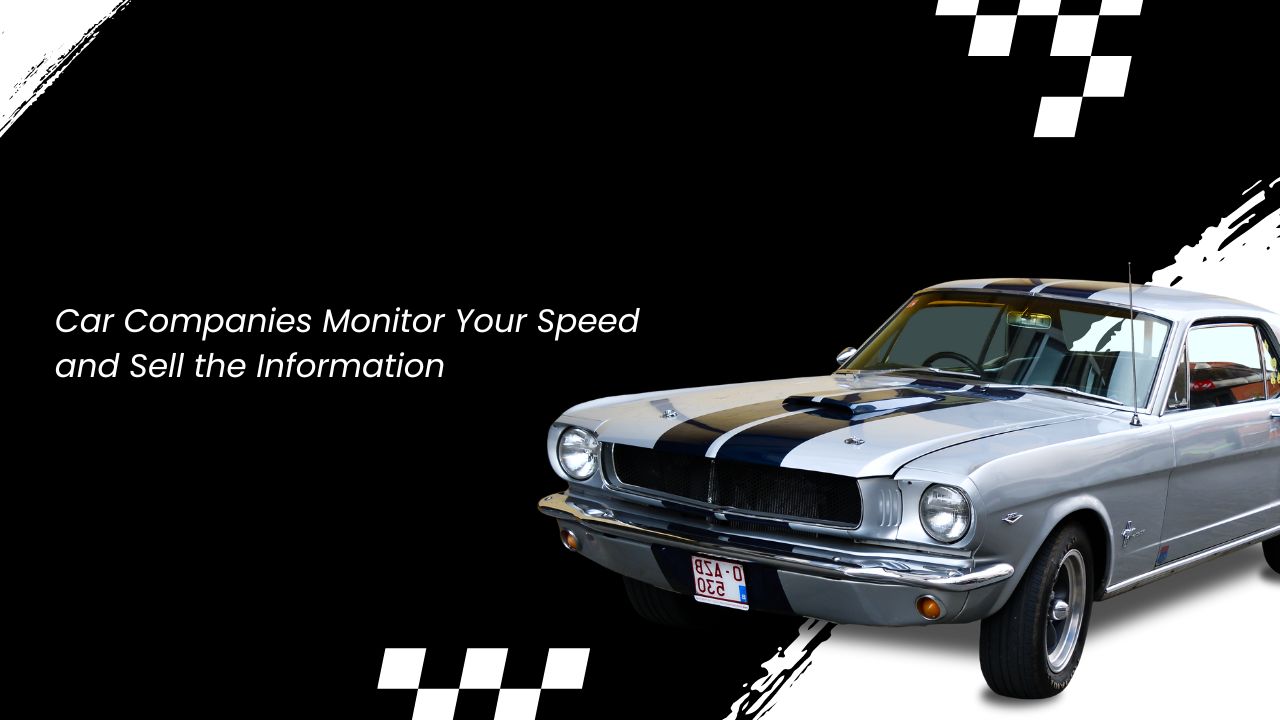In today’s connected world, cars are no longer just a means of transportation. Today’s vehicles are equipped with advanced technology that monitors every aspect of your driving behavior, including your driving speed. While these technological innovations improve security and convenience, they also raise important privacy concerns.
One of the most controversial practices in this regard is that automakers monitor your speed and sell that information to third parties. In this article, you’ll learn how automakers are monitoring your speed, why they’re buying this information, and what it means for you as a driver.
The rise of the connected car
The advent of the connected car has revolutionized the automotive industry. These vehicles are equipped with GPS, sensors, and internet connectivity to collect and transmit important data. This data includes not only location and acceleration information but also a detailed view of driving conditions such as acceleration, braking, and speed.
Automakers use this data to improve vehicle performance, improve safety features, and provide personalized services to drivers. However, the collection and use of this data go beyond this useful purpose. This is how car manufacturers check your speed.
Modern cars are equipped with remote information processing systems that can monitor and record various driving signals. This system uses GPS to track the vehicle’s location and speed. In addition, the on-board diagnostics (OBD) system can provide detailed information about the vehicle’s performance and the driver’s behavior.
This data is often sent to the car manufacturer without the driver’s knowledge or consent. The collected data is stored in a database, where it can be analyzed and used for various purposes. Why do automakers sell speed data?
Automakers value the data collected from vehicles. They can make a lot of money by selling this information to third parties. Here are some of the main customers for this data:
Excellence: Insurance companies use driver data to better assess risk and offer performance-based insurance (UBI) policies. By analyzing speed and other driving behaviors, they can adjust rates based on each driver’s risk level.
Marketing: Marketing companies can use driver data to send targeted ads. For example, if you often drive at high speeds, you might see ads for high-performance tires or driving schools.
Fleet management services: Companies that operate fleets can use speed data to monitor and improve driver performance to ensure a safer, more efficient operation.
Law enforcement: On a limited basis, law enforcement agencies may have access to driver information for investigative purposes.
Personal issues
Selling speed and other driver data raises privacy concerns. Many drivers are unaware that their driving behavior is being tracked and sold to third parties. Lack of transparency could erode trust between consumers and automakers.
Furthermore, the use of driver data by insurance companies could result in higher premiums for drivers who are deemed high-risk due to their speed or driving habits. This approach could penalize drivers for behaviors that may not be risk-related.
Apart from this, people are also concerned about data security. The more data that is collected and shared, the greater the risk of a data breach. If criminals get access to your personal driving information, it could lead to identity theft and other cybercrimes.
Protect your privacy
Drivers have several options to protect their location and control the data collected by their vehicles.
Know how your car works: Know your car’s technology and the data it collects. Consult your vehicle’s owner’s manual or contact the manufacturer for more information.
Read the privacy policy: Read the manufacturer’s privacy policy before buying a car. Find out how your information is used and whether you can control how it is collected and shared. Public Options: Some manufacturers offer public options for data collection. This may limit some internet services, but it protects your site.
Third-Party Tools: Be careful when using third-party remote data processing tools, such as those provided by your insurance company. Find out what data is collected and how it is used.
Privacy Advisory: Support laws and policies that protect consumer privacy and govern the collection and use of driver data. The Future of Data-Based Driving
As technology advances, the collection and use of driver data is becoming more common. It is important for automakers, carriers, and consumers to find a balance between using this data for revenue and protecting privacy.
Manufacturers must implement clear data practices and clearly communicate to consumers what data is collected and used. Carriers must implement strict policies to ensure data is collected and used appropriately and securely. However, consumers must be aware of the sensitivity of their data and have control over it.
The intersection of technology and privacy in the automotive industry is shaped by the activities of car companies to monitor and sell driver data, such as speed.
